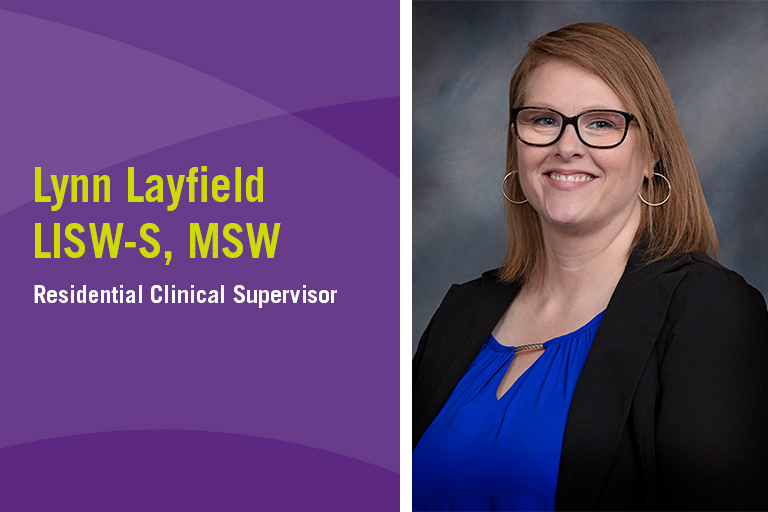Building a Network of Support: How Intensive Outpatient Addiction Treatment Can Help

Intensive Outpatient Programming, or IOP, is one level of OneEighty’s continuum of care which can often fall between residential treatment and outpatient counseling. OneEighty offers two intensive outpatient addiction treatment programs: CHOICES, designed to treat individuals struggling with chemical dependency in an outpatient setting; and CADET, a similar substance-use treatment program offered to inmates at the Wayne County Justice Center. Both programs include clinical evaluations, treatment for chemical dependency, therapy, and aftercare services.
Who runs IOP?
Lynn Layfield is OneEighty’s Intensive Outpatient Team Leader and Intensive Outpatient Counselor. She came to OneEighty as an intern and worked her way up to her current position, where she oversees the intensive outpatient program.
“Lynn is really dependable and she takes care of business,” says Bobbi Douglas, Executive Director of OneEighty. “She makes sure people are getting the best care possible. She brings creativity. She brings fun, which can be important. Sometimes people need to see that there’s some happiness or humor or those kinds of things in recovery, as well as all the hard work that people do. She’s knowledgeable about addiction, and I think she relates really well to clients.”
What does IOP look like?
IOP addresses mental health and addiction through group therapy. The group meets three hours a day, three days per week, in the morning, afternoon, and evening to best accommodate a variety of schedules. The length of treatment varies depending on the client’s needs. Lynn facilitates the morning session.
“I think that being able to have your struggles and addiction normalized in a group setting is so imperative,” says Lynn. “I do a lot of cohesion building. Let’s say it’s your first day in group. You come in; we do introductions. I start group with a mindfulness exercise, and then we get into whatever topic we’re currently working on.”
Lynn introduces engaging activities like the games Apples to Apples and Jeopardy! reformatted to be about addiction and recovery. “If you can make it enjoyable for them, they really appreciate that,” offers Lynn.
When should you enter IOP?
IOP is an option for those who prefer to stay home and potentially still work while seeking intensive treatment. On the continuum of care, it can be a step down from residential treatment to help facilitate the shift into outpatient counseling or 12-step programs. IOP best helps those who are lacking structure and support during their recovery.
“IOP could be the very beginning stages of the development of support for people in recovery,” says Lynn. “If you don’t have support, it’s going to be extremely difficult for you to maintain recovery.”
IOP can also be repeated for those who relapse. “Sometimes people see addiction as a failure,” Bobbi tells us. “When they’re struggling is when they should be back in treatment. IOP can be a great place to go if a person has relapsed.”
What do you learn in IOP?
IOP focuses primarily on education centered around recovery and addiction. Many people think IOP is about developing coping skills, but Lynn asserts, “I think it’s not a lack of coping skills, it’s the ability to access them in times of crisis. What addiction does is to disconnect a person from everything, so we have to rebuild those connections.”
Lynn adds that it’s important not to separate recovery from the rest of your life. “Recovery should encompass everything in your life. Spending time with your family and building those relationships and developing that trust again is part of your recovery. You can’t take a break from recovery.”
It’s also important to make time for recreational activities that are sober and healthy for a person’s recovery. Sober recreational activities can drastically improve a person’s quality of life and assist in recovery. “If you do not find things that are enjoyable and pleasurable for you, it is going to be a struggle,” offers Lynn. “You’re going to turn back to that same coping skill that you did before – one that didn’t work.”
How can you find more information?
To learn more about OneEighty’s intensive outpatient addiction programming, check out our addiction and substance use services, or you can call our office (330-264-8498) for the most up-to-date information about topics and meeting times.
OneEighty Resources
For those encountering a substance use crisis, please call OneEighty’s Substance Use Crisis hotline, available 24 hours per day, 365 days per year, at 330-466-0678. For other resources, click the links below:
